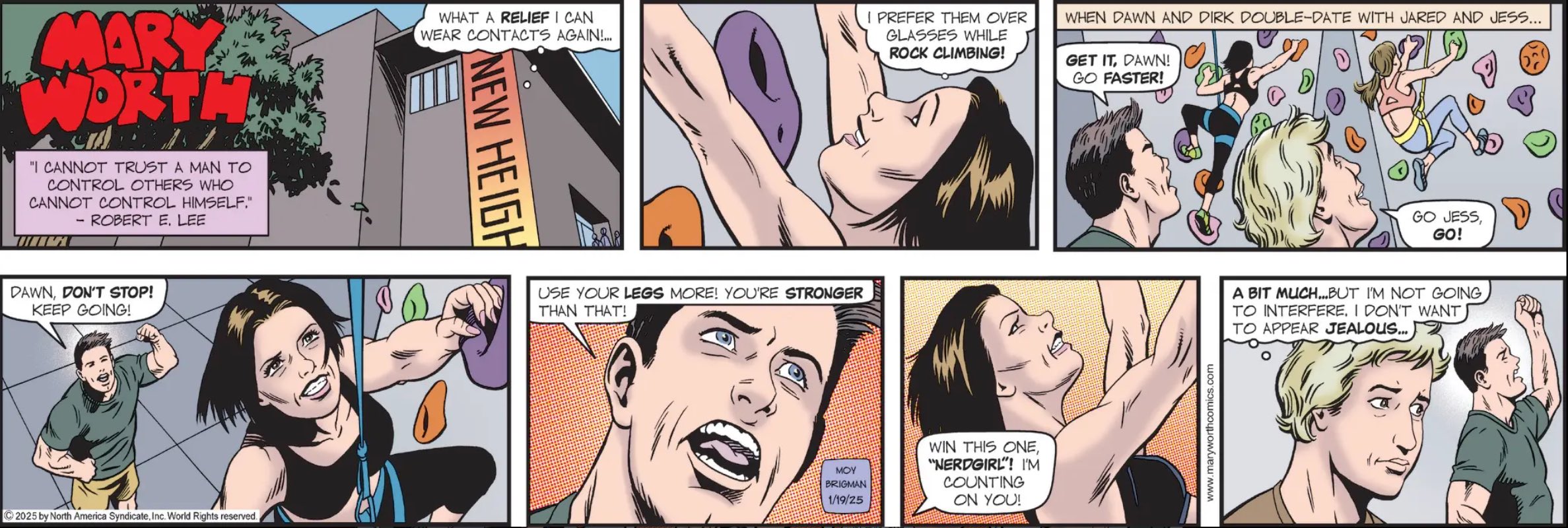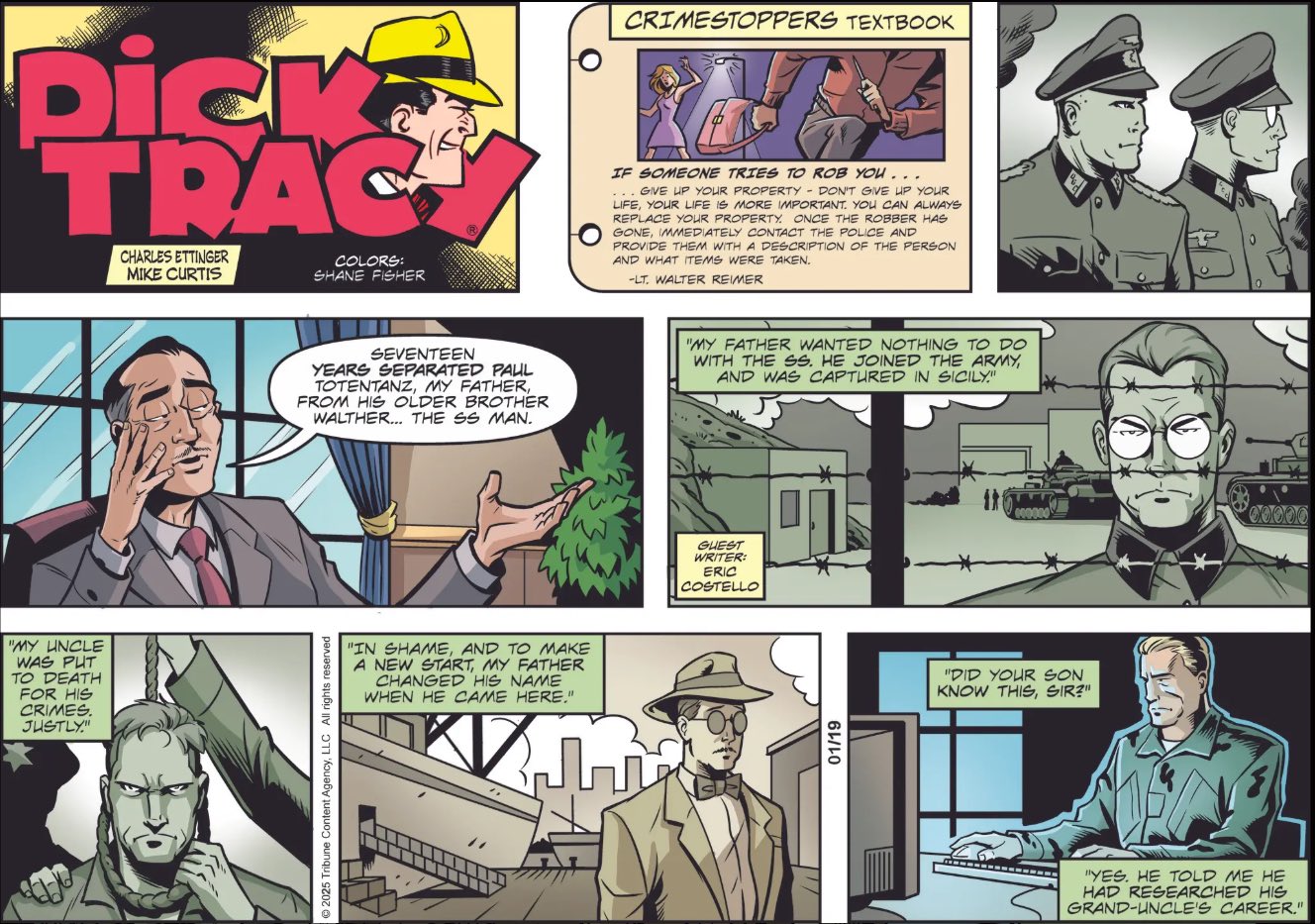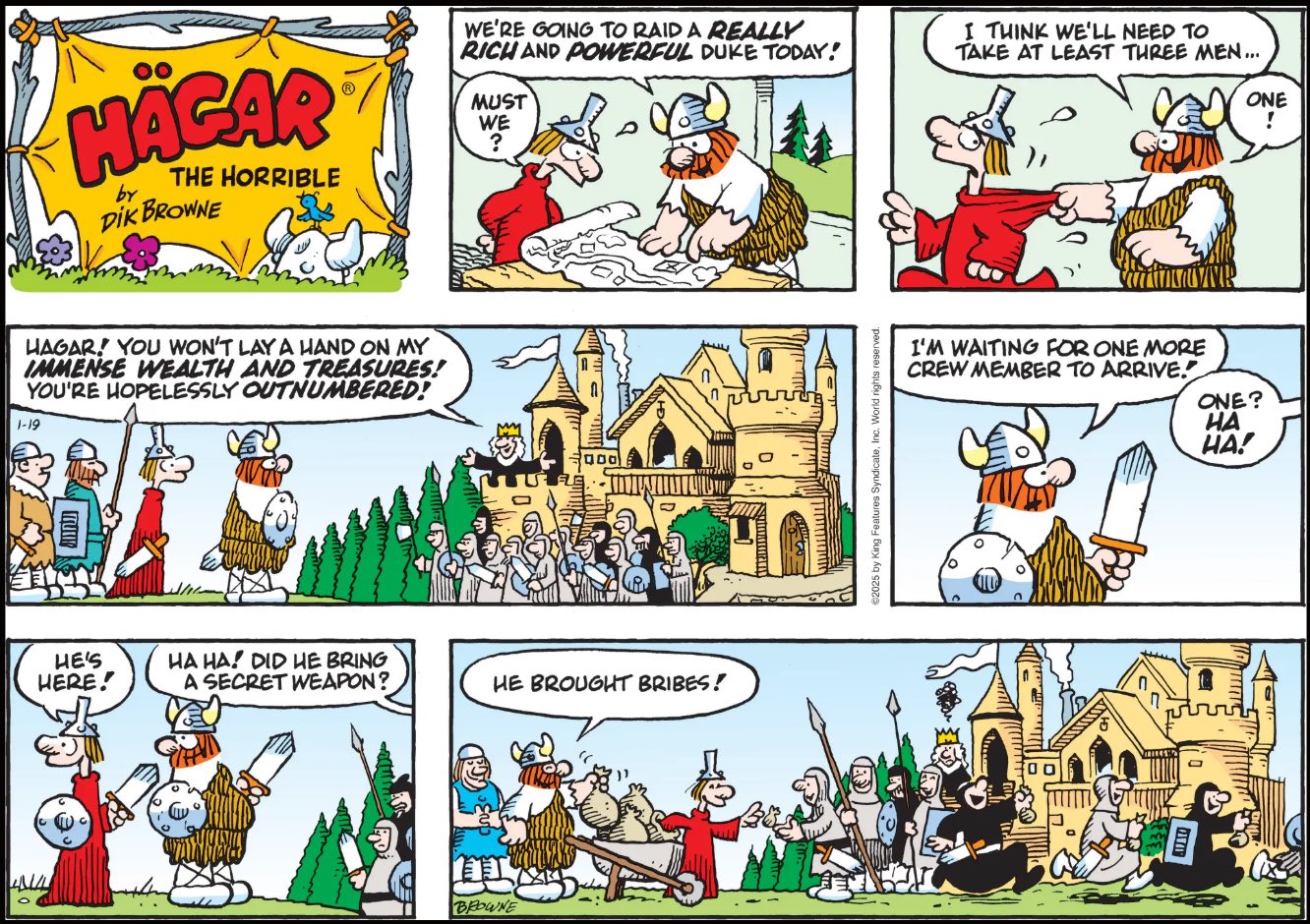Fishy business
Post Content
Hagar the Horrible, 2/6/25

I think the joke here is supposed to be “Lucky Eddie, who is notoriously soft and weak, is a cat guy,” and as a cat guy I’m not going to take the bait. I am going to point out that, as depicted in the strip, Lucky Eddie is much less a cat guy (are there really any running jokes about him liking cats?) as a fish guy, or more precisely a fish–lady guy. Which leads me to ask: what’s his mermaid girlfriend’s bathroom situation like? In the strip where they’re hanging out together and she’s floating in a fish tank, is the fish tank the equivalent of her litter box? Much to think about, if you like thinking about mermaids peeing and pooping, and I apologize because you probably don’t actually like thinking about that and it may be that I did get mad about the cat thing and took the bait a little bit.
Blondie, 2/6/25

Do you like those odds, Elmo? Because I don’t, actually. I mean, I think the set of pizza ingredient combos that anyone would want to eat are relatively limited and covered by the standard menus at most pizza places, and we don’t need to go that far beyond the limits. If you want to explore the possibilities of “infinite kinds” of pizza and call up some hapless restaurant and say “Yeah, gimmie a pizza with [spins wheel] bakelite crust, tomato sauce, and [spins wheel again] deuterium” be my guest, but I don’t think you’ll enjoy the results.
Rex Morgan, M.D., 2/6/25

Yeah, what is the deal? What the heck is the deal with Rex Morgan, exactly, or just, like, the deal in general? I for one would like to know! Like, really, earnestly, please explain the deal to me. Glad to see we’re getting to the bottom of what the deal is, finally.







